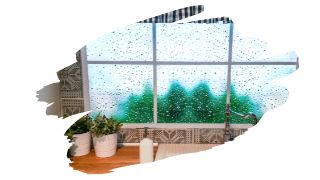A kitchen countertop needs to be durable, water-resistant, and look great. But, out of all of the different materials that countertops are made from, wood is probably one of the trickiest to make water-resistant.
Wood is a notoriously water-wicking material, and it takes a lot of effort to protect it from water damage. Which is why, a kitchen countertop that’s made from a naturally water-resistant wood is a real boon.
Which brings us to Acacia wood. This tough tropical hardwood is fast-rising as a great option for a long-lasting countertop. But, what is it about Acacia that makes it the right choice for your kitchen?
Well, in this post you will discover what is the toughest — yet most affordable — wood you can use for your kitchen countertop. You’ll also learn what natural characteristic makes Acacia one of the more rot-resistant timbers on the market.
And keep reading to find out just how tough Acacia hardwood can be.

This post may contain affiliate links to products that we receive a commission for (at no additional cost to you). Learn more here.
What Is The Hardest Toughest Wood For Countertops?
For an affordable tough wooden countertop, a great choice wood can be found in Hickory.
This wood type is harder than Oak or Maple. And as this tree species is native to the United States, it is more affordable to source than tropical hardwoods like Teak wood.
But, unlike Teak wood, Hickory wood isn’t very rot resistant. So, it will need to be properly sealed if you want to prevent wood rot eating away at your countertop.
What About Butcher Blocks? What’s The Best Wood For Butcher Block Countertops?
Well, when it comes to food prep surfaces such as butcher blocks, you won’t go wrong in choosing Hard Maple wood.
Hard Maple is also known as Sugar Maple — and yes, that’s the same tree that we get Maple syrup from. Nonetheless, this tough dense hardwood is perfect for butcher blocks and cutting boards alike.
But, once again, Maple wood (like Hickory) is not rot-resistant, and it can be fairly susceptible to warping.
Related Post: Acacia Vs Maple Cutting Boards (4 Key Pros And Cons)
What About Acacia Wood? Is Acacia Good For Kitchen Countertops?
Acacia wood is one of the most naturally rot resistant durable hardwoods you can use for your countertop.
Thanks to the excessive amount of natural tree oil saturating the grain of this timber, it’s less susceptible to rot and decay. And, (depending on the Acacia sub-species), this wood can be as tough as even Hickory.
Wait…Does Acacia Wood Scratch Easily?
Generally, Acacia wood used for countertops, tends to be tough and scratch-resistant. However, full disclosure, it all very much depends on the exact specific species of Acacia.
You see, there are in fact thousands of different subspecies of the Acacia tree. And, bafflingly, not all Acacia products will clearly label their specific tree subspecies.
Related Post: Is Acacia Wood A Good Choice For Cooking Utensils?
Still, if you know the specific subspecies of Acacia, you’ll have a good idea as to how scratch-resistant it will be. And that’s because one of the ways that we measure the scratch-resistance of a type of wood is by checking it’s Janka rating.
What Is The Janka Rating (And Why Does It Matter For Scratch Resistance)?
The Janka rating measures how many pounds of force it takes for a piece of metal to dent a piece of wood. The higher the Janka rating, the greater the amount of force required to make a scratch.
Now, when it comes to scratch resistance, the Janka rating gives us a good idea of just how tough Acacia wood is. But, the Janka rating varies wildly amongst the different Acacia subspecies.
For example, the Australian Blackwood (also known as the Acacia Blackwood), has a very solid Janka rating of 1160 lbf. And that means it takes some 1160 pounds of force to scratch this timber.
However, Raspberry Jam Acacia Wood (scientifically known as Acacia acuminata) dwarfs it’s family tree cousin when it comes to toughness. And this is thanks to Raspberry Jam Acacia’s whopping 3100 Janka rating.
To put that into perspective, Hickory wood — one of the toughest hardest woods native to North America — has a Janka rating of 1820 lbf. So, Raspberry Jam Acacia is almost twice as hard as Hickory wood.
Can Acacia Wood Get Wet? Yes it can, this wood will absorb water. However, it won’t suffer from the very worst effects of water damage, the way other wood types can.
Okay Then…Is Acacia Wood Safe To Use As A Countertop?
In its solid form, Acacia wood is not harmful to us. The only real issue with Acacia wood comes in the form of sawdust.
Sawdust, from almost any species of wood, is a sensitizer. Which means that it can cause respiratory issues — and even allergic reactions — if it comes into contact with our skin.
However, as a solid countertop, this is not an issue when it comes to using Acacia wood. So, Acacia wood is a food safe surface, making it perfectly suitable for a kitchen environment.
Related Post: What’s The Real Difference Between A Teak Vs Acacia Cutting Board?
And Does Acacia Wood Need To Be Sealed?
Yes it does. While it may be more rot-resistant than Maple or Hickory, Acacia is no Teak wood when it comes to durability.
So, that countertop will need a few coats of water-repelling sealant to protect it if you want it to last.
What Type Of Sealant Should You Use On Acacia Wood Countertops? A penetrating hard wax oil finish will give your countertop the durable tough water-resistant finish it needs.
To Wrap Up, Here Are The 3 Key Takeaways From This Post…
- 1). Acacia wood is a naturally rot-resistant tough tropical timber.
- 2). It is a great option for creating a long-lasting kitchen countertop.
- 3). Acacia wood will still need a top coating sealant to protect it. And a penetrating hard wax oil finish is the best way to protect this hardwood.


